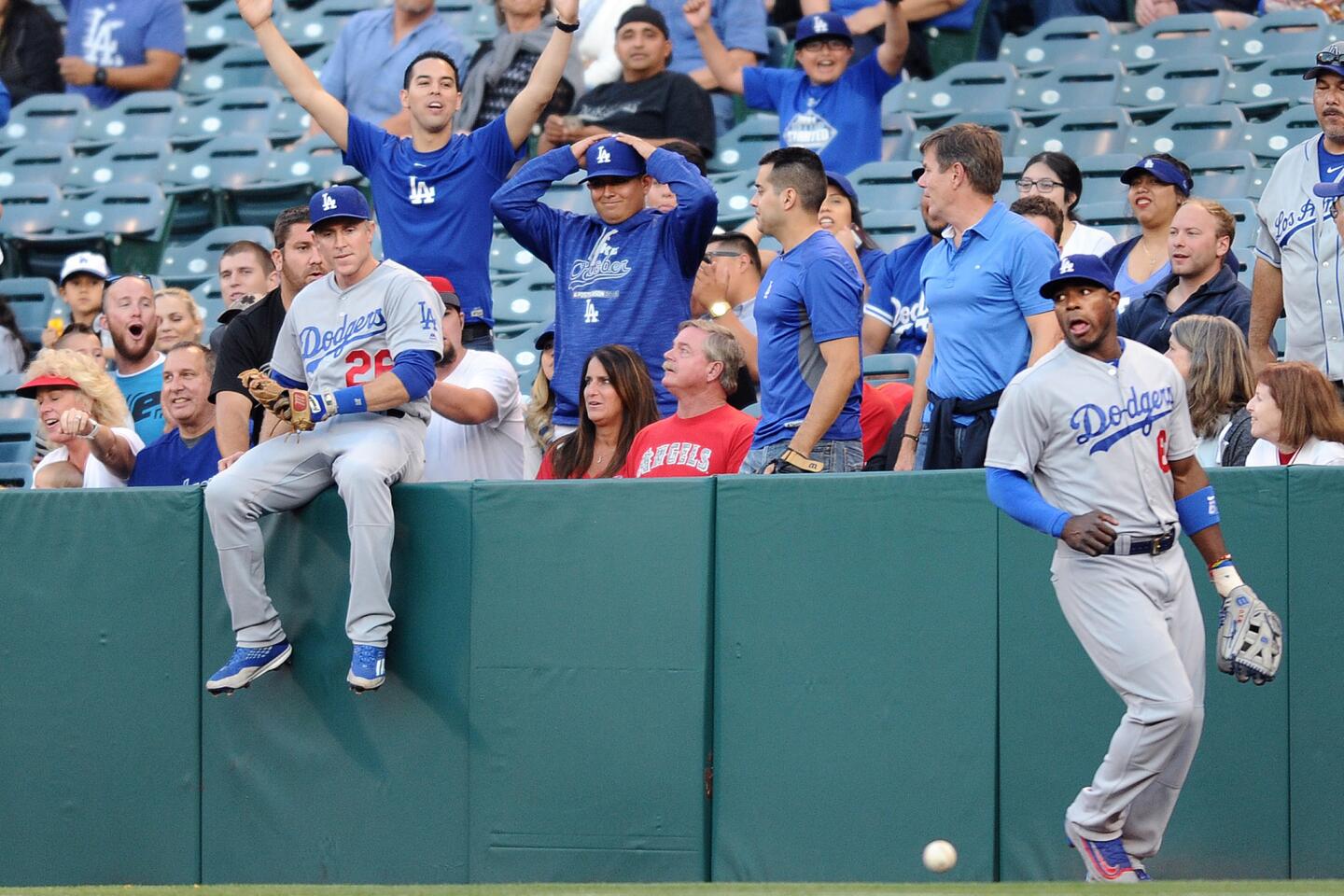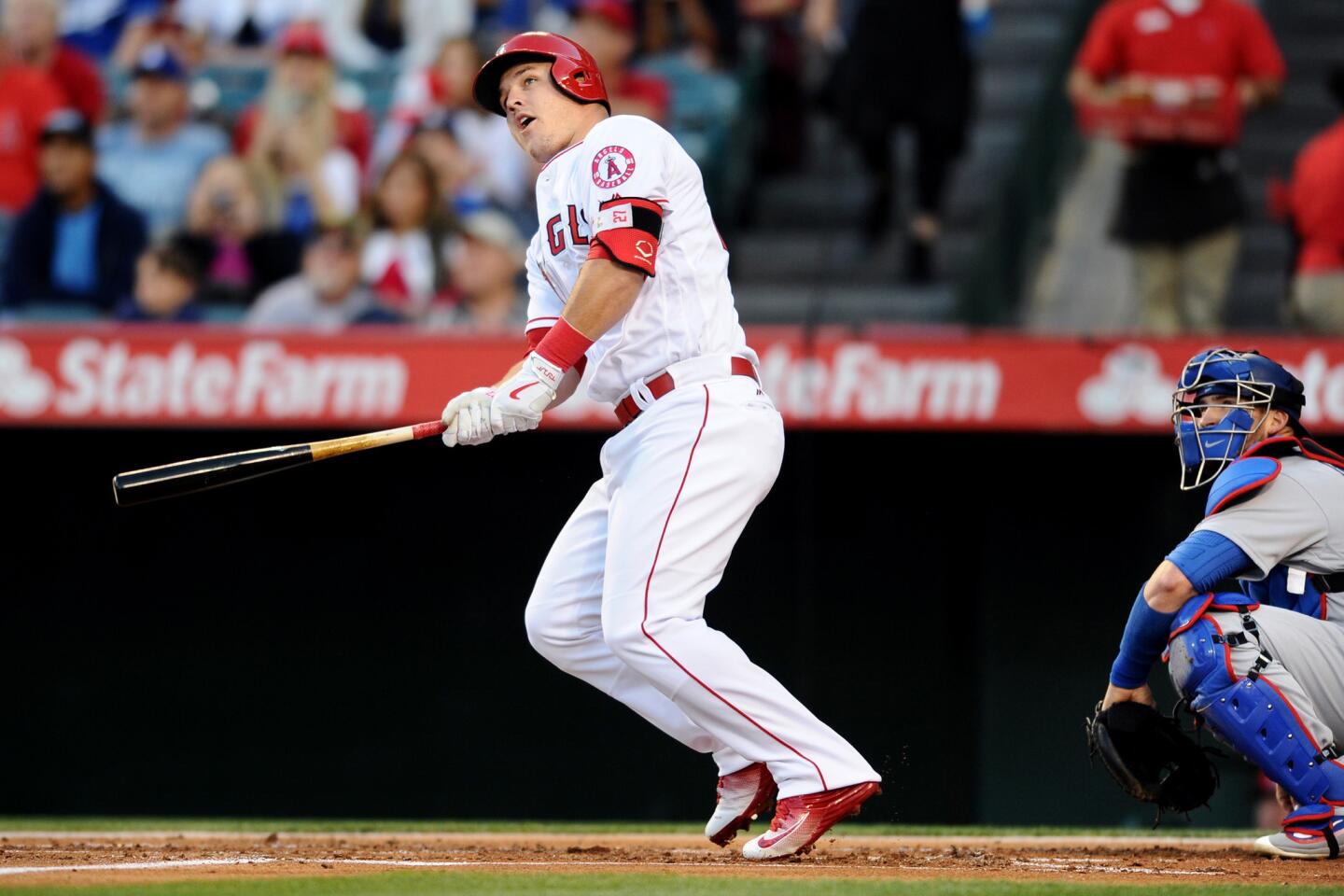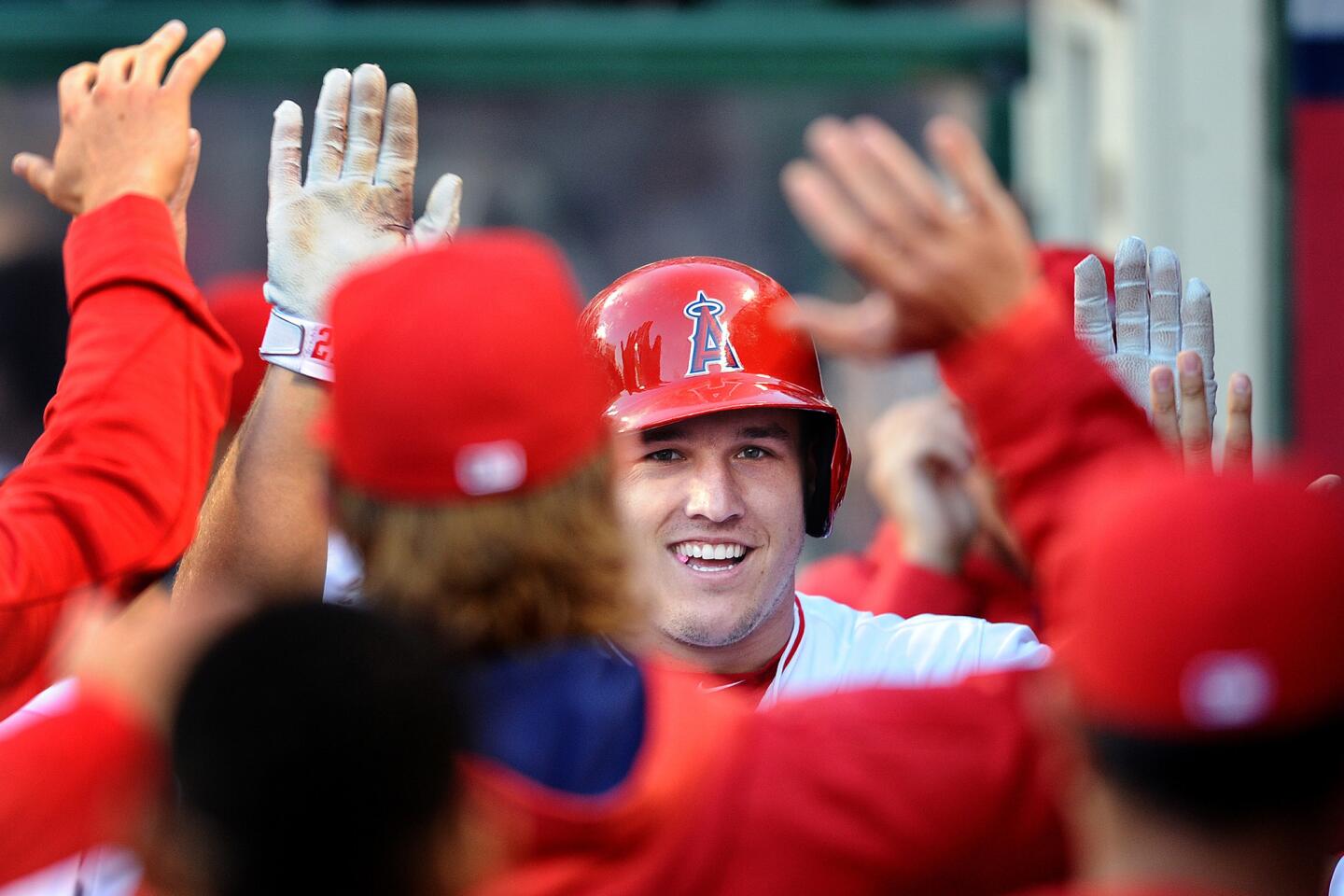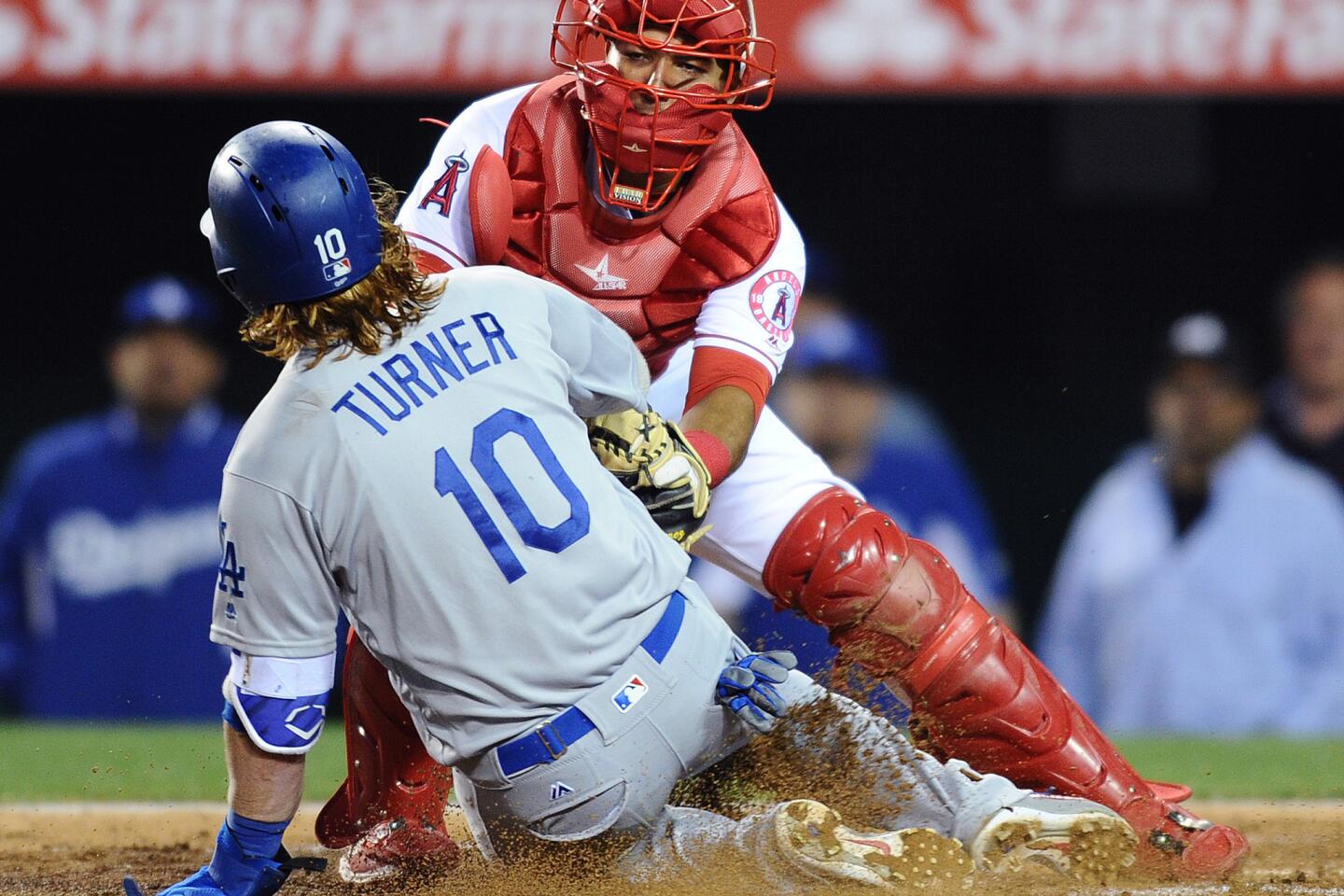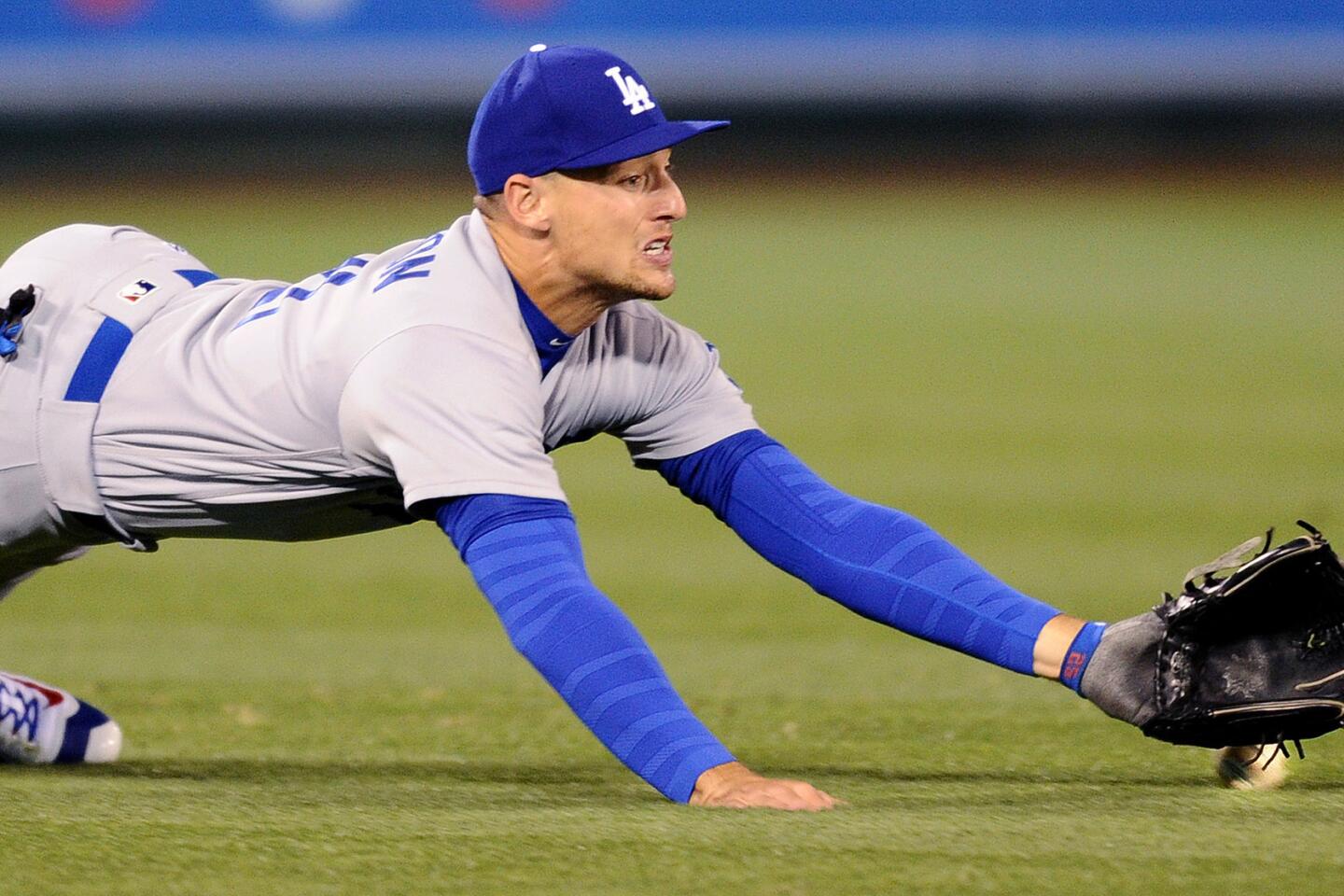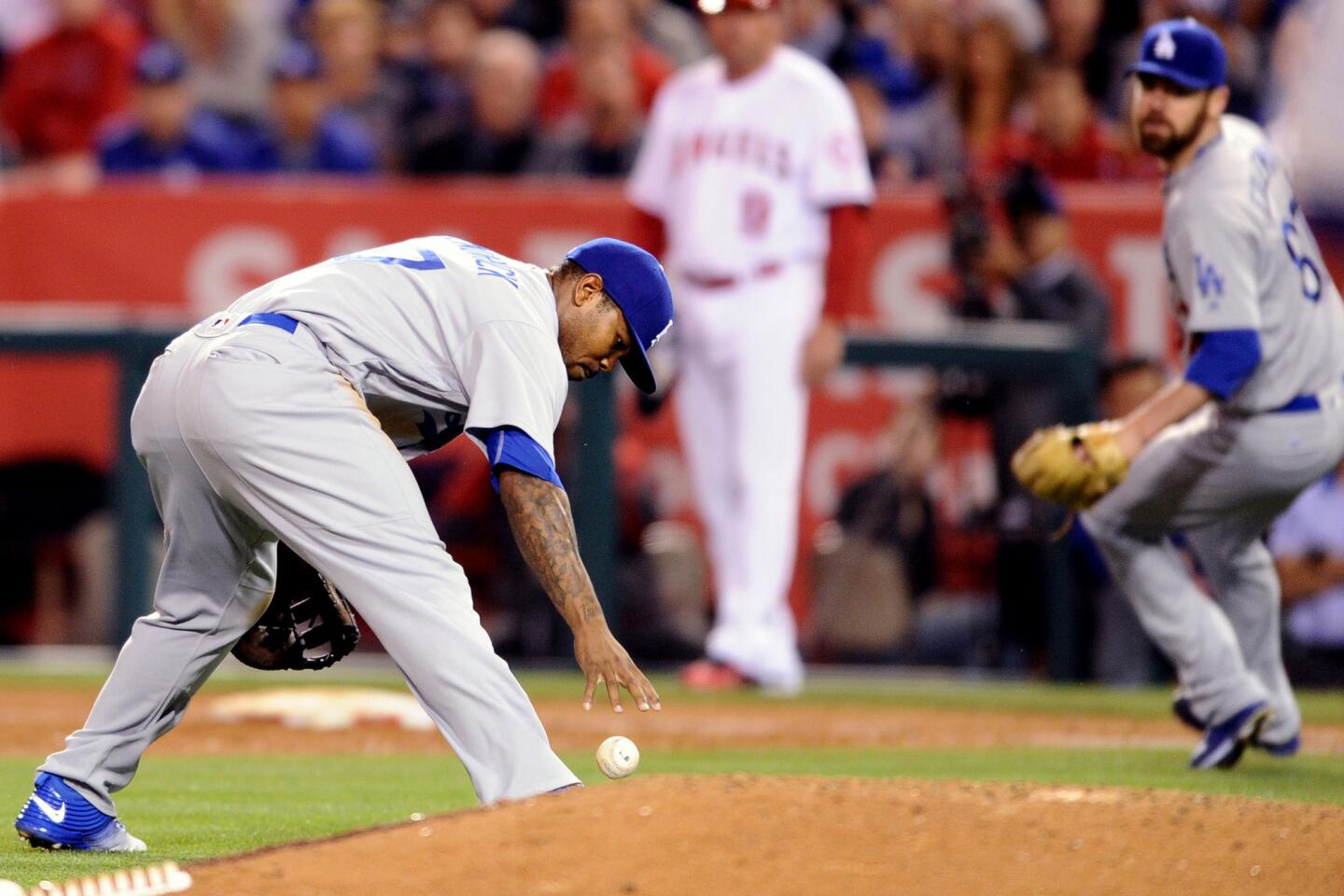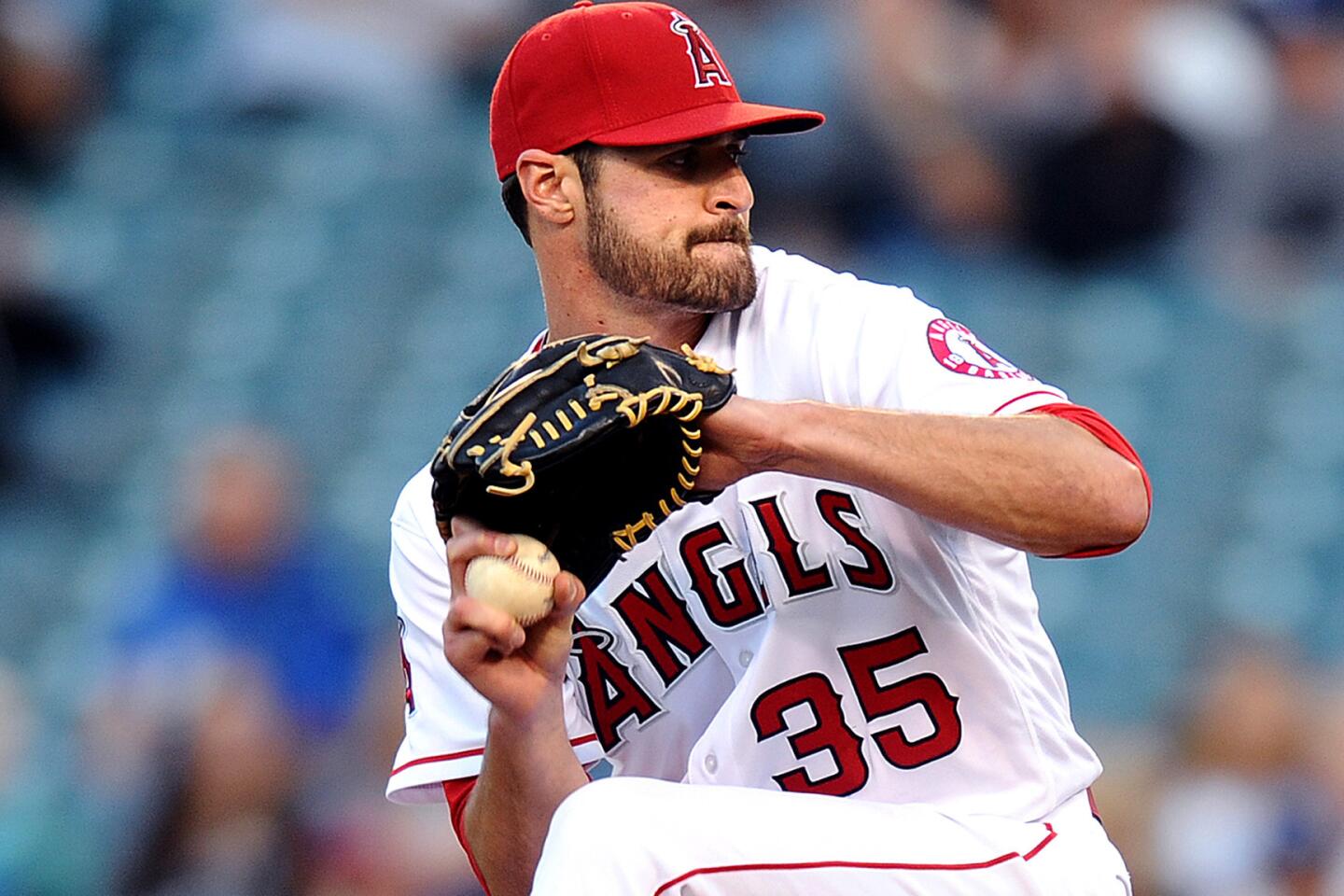Angels trading Mike Trout is a dumb deal that would make no sense for any team
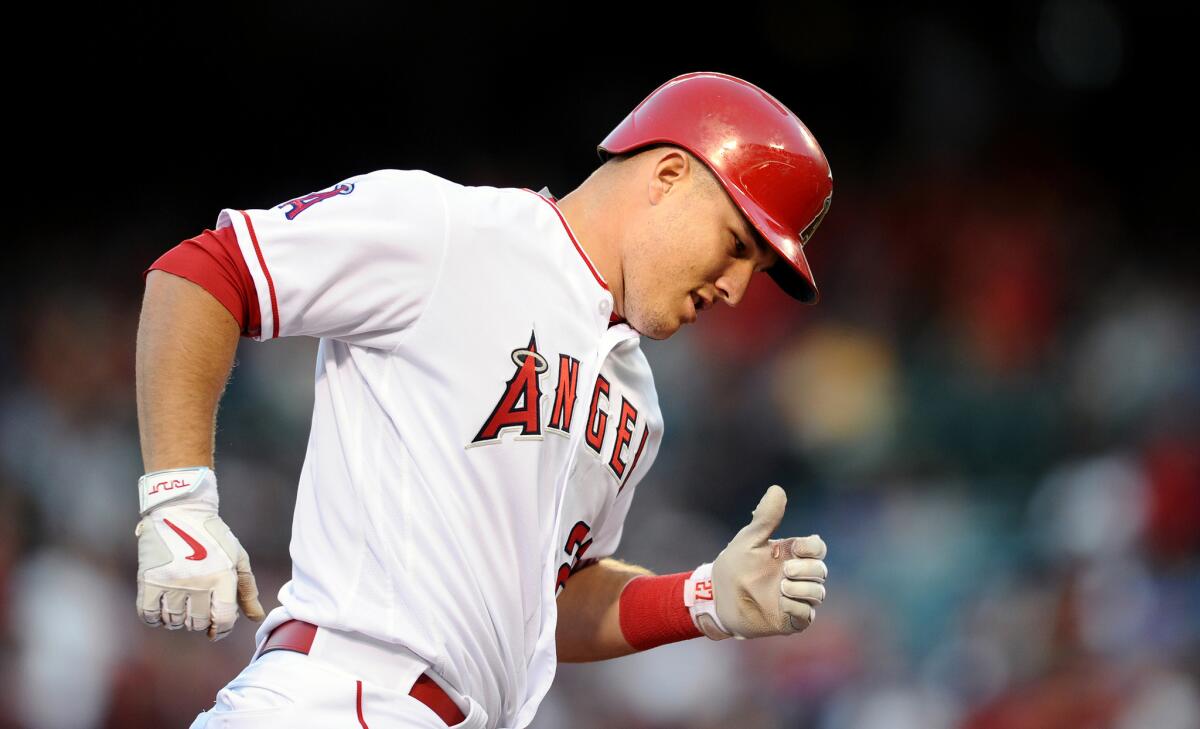
Angels center fielder Mike Trout rounds third base after hitting a solo home run against the Dodgers during a game May 18 in Anaheim.
- Share via
One Angel on the disabled list Wednesday, two Angels on the disabled list Tuesday, four starters and a closer and two shortstops already there. General managers are nothing if not opportunistic, even if they cloak that trait in sympathy.
“Sorry, buddy. Tough luck. But, hey, if you want to talk about trading Mike Trout, we’re here for you.”
How many calls has Billy Eppler, the Angels’ first-year general manager, taken about Trout?
“None,” Eppler said.
Hard to believe, maybe, but those inside the industry might understand what so many outsiders apparently do not. There is no compelling reason for the Angels to trade Trout now, and there is no persuasive evidence they can reboot their team by surrendering the most dynamic player in their history.
With their budget tight, their minor league system weak, and their international presence practically invisible, the Angels’ most effective route to rebuild — or so the silly story line goes — would be to trade Trout for a school of young talent.
That assumes, of course, that the Angels could persuade another team to part with all of its best young talent. Trout is so dominant that the Angels would reasonably demand the top five young players from any interested trade partner, and even that would not guarantee a fair return.
The Dodgers’ top five prospects a decade ago were so glamorous that they sported a nickname: the Jacksonville Five, the brightest stars on the 2005 Southern League champions, one of the most talented minor league teams in recent memory.
The Jacksonville Five, in order of their 2006 ranking by Baseball America: pitcher Chad Billingsley, infielder Andy La Roche, infielder Joel Guzman, catcher Russell Martin and pitcher Jonathan Broxton.
That’s two misses and three hits — Billingsley, Martin and Broxton, all solid but not spectacular players.
“If you look at the norm for the industry compared to that, that’s pretty dang good,” said Logan White, the Dodgers’ scouting director at the time.
The total WAR (wins above replacement value) of the Jacksonville Five for the Dodgers: 38.3 over a combined 23 seasons, according to baseball-reference.com. Trout’s WAR for the Angels, over four full seasons and parts of two others: 40.2.
And Trout is 24, still the youngest position player on the Angels.
“It’s tough to take five guys and expect all five guys to be really good players,” White said. “You might get their top five guys, and one is an everyday player, and the rest are just cup-of-coffee guys.”
When the Florida Marlins traded Miguel Cabrera — and packaged pitcher Dontrelle Willis with him — they got six young players, including two of the top 10 prospects in baseball at the time: pitcher Andrew Miller, who did not flourish until the Boston Red Sox made him a reliever five years later, and outfielder Cameron Maybin, who never did flourish.
There was a time when the Angels’ farm system was regarded as highly as the Dodgers’ farm system is now, and when Brandon Wood, Casey Kotchman, Jeff Mathis and Dallas McPherson were Corey Seager, Julio Urias, Joc Pederson and Jose De Leon.
Asking prices have skyrocketed since then, as teams increasingly value how many years they can control a player before salary arbitration and free agency.
“Everybody gets these labels of prospect now,” Broxton said. “They get so much expectation put on them. The whole prospect thing is blown out of proportion.”
The Atlanta Braves got a starting outfielder, a back-end starting pitcher and last year’s first overall draft pick for Shelby Miller, a fair starting pitcher. When the Dodgers inquired about young ace Jose Fernandez last winter, the Marlins asked for Seager, Urias, Joc Pederson — and two more prospects.
For Trout, the Angels would have to shoot higher. That could become problematic for a potential trade partner, because his contract pays him $33.25 million in 2018, another $33.25 million in 2019, and another $33.25 million in 2020.
“You’re getting a guy who’s being paid at the very top of the food chain and trading three to five potential impact players in return,” one major league general manager said. “I don’t think there is a scenario where that is going to happen.”
Care to put a percentage on it?
“I’d say there is a 95% chance the Angels have no interest in trading him,” the GM said, “and a 99% chance that a team would not have both the payroll space and the prospect cachet to make it worth the Angels’ while.”
The Angels cannot make a Herschel Walker trade, because baseball teams are forbidden from trading almost all of their draft picks. The Dallas Cowboys might have positioned themselves for a Super Bowl by trading Walker, but they got eight draft picks from the Minnesota Vikings in the deal.
Trout controls where he goes — he has a no-trade clause — and he says he wants to stay. He is signed through 2020, leaving plenty of time to try rebuilding around him rather than without him.
The Dodgers might be in better shape for the future, but at present they are 21/2 games out of first place. The Angels, for all their dire straits, are 41/2 games out of first place.
Let Mike play. Let Mike stay.
Follow Bill Shaikin on Twitter: @BillShaikin.
ALSO
Angels rout the Dodgers, 8-1, behind Nick Tropeano’s career night on mound
Angels starter Garrett Richards hopes he can pitch this season
Angels lose another player when Geovany Soto opts for surgery on injured knee
More to Read
Go beyond the scoreboard
Get the latest on L.A.'s teams in the daily Sports Report newsletter.
You may occasionally receive promotional content from the Los Angeles Times.

